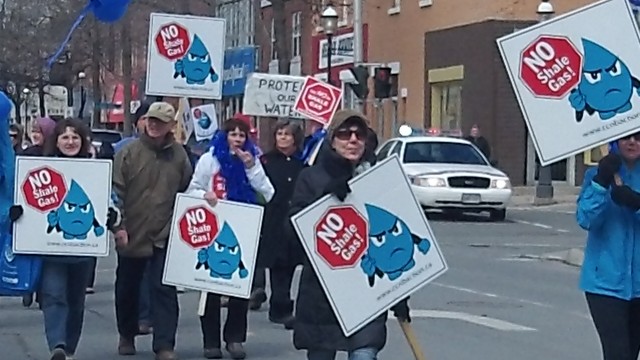The eighth edition of the Compendium of Scientific, Medical, and Media Findings Demonstrating Risks and Harms of Fracking, released on April 28, 2022, provides an up-to-date assessment of the state of the fracking industry and its health and environmental impacts.
The report’s authors compiled findings from articles in peer-reviewed medical or scientific journals, investigative reports by journalists, and reports from, or commissioned by, government agencies.
Their top line message?
“In sum, the vast body of scientific studies now published on hydraulic fracturing in the peer-reviewed scientific literature confirms that the climate and public health risks from fracking are real and the range of environmental harms wide.
Our examination uncovered no evidence that fracking can be practiced in a manner that does not threaten human health directly or without imperiling climate stability upon which human health depends.”
You can read the entire Physicians for Social Responsibility report here.
It is yet another piece of evidence that New Brunswick’s moratorium on shale gas fracturing was smart public policy in 2014 and remains the right public policy to protect people’s drinking water, air quality and health and safety in the face of climate change.
At the Conservation Council, the compendium reminded us of the February 2016 report from the New Brunswick Commission on Hydraulic Fracturing, which stated, “the world is shifting towards integrated energy systems that will be supported by a variety of advanced technologies, most of which will not require fossil fuels.”
The commissioners said New Brunswick must transition away from the old-world economies of resource extraction into a new value-added and knowledge-based era driven by new forms of energy, noting the challenge and opportunity for economic development today is in clean and low-carbon technologies as governments in New Brunswick and across the world respond to the threats of climate change.
Recommended links:
- Renewable Energy Is The Future, Not Fossil Fuels
- Commission’s Fracking Report Shows Moratorium Remains Smartest Policy And Time Is Right To Begin New Brunswick’s Transition to Low-Carbon Economy
- Corbett says wrong decade for oil and gas developments as Corridor rebrands and doubles down on Sussex-area fracking
- Statement on Report From New Brunswick Commission on Hydraulic Fracturing
- Quick facts on hydraulic fracturing
- Shale gas myth busting

